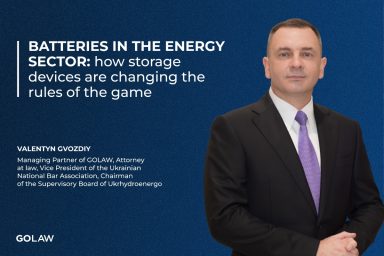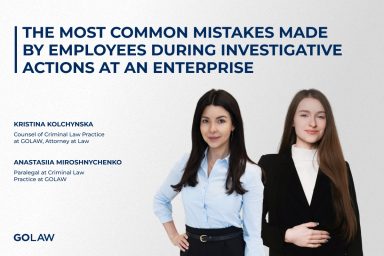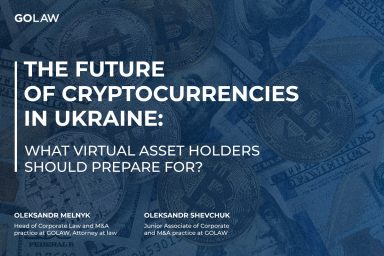Esport is a new niche in IT sector of Ukraine
Contents
Nowadays, few of us could be surprised by the scale of the esport industry development. Hundreds of thousands of tournaments’ live views, millions of dollars in prize pool and advertising revenue are constantly promoting esport in the world and in Ukraine in particular. The recent privatization of the Dnipro Hotel, which will include an esport arena, training areas and special rooms for professional players, emphasizes once again that esport is no longer the future, but the present.
Undoubtedly, the recognition of the legal status of esport in Ukraine is a significant occasion that cannot be underestimated, but what is the next step? Is it enough for the development of the industry?
We have official recognition of esport as a sport on a par with football or boxing, but at the same time there is no other special regulation in this area. Accordingly, most issues concerning esport are governed by general national law, which is quite outdated and inapplicable to esport.
Relationship between the player and the team
It is the provisions of the Labor Code of 1971 which are one of the main reasons for the unattractiveness of Ukrainian jurisdiction for foreign teams and players.
As a rule, the contracts of top-level players provide for a non-compete clause, according to which a player cannot leave the team in favor of a competitor during the term of the contract, or for a certain period after its expiration. In Ukraine, such provisions usually do not work, as the law and court’s practice are on the side of the employee, because “the terms of employment contracts that worsen the state of the employee are invalid.”
Also, the player usually concludes a so-called Endorsement Contract, according to which he shall perform not only his primary professional duties in the game, but also become the brand of the team he represents. It includes, in particular, mandatory autograph sessions, the use of only certain promotional products during live broadcasts (clothes, beverages, computer equipment, etc.), restrictions regarding certain statements in social networks, etc. Some contracts may even prescribe the requirements regarding the player’s appearance, such as weight loss over a period of time. In Ukraine, this type of contract is not directly regulated by law, but its conclusion is not prohibited. At the same time, the parties should be aware that certain provisions of such contract may be recognized as invalid by a court, in particular in terms of the right to work, the right to freedom of expression and the protection of honor, dignity and business reputation.
Additionally, in case of dismissal at the initiative of the employer because of the specifics of the work, the criteria of incompatibility of the player to the occupied position are very vague.
Considering that esport is regarded as a recognized kind of sport, problematic labor issues could be resolved by resolving problematic issues of sports law in general, such as, for example, the transfer of players, penalties for breach of employment contracts, confidentiality and non-compete conditions, the possibility of smart contracts conclusion, etc.
Visa issues
In some countries, esportsmen have been granted the status of professional sportsmen, primarily to allow foreign players to enter the country upon a special visa without any hindrance. Equating esportsmen with ordinary sportsmen in Ukraine should also make it easier for both tournament organizers and participants. At the same time, the question regarding the other team members, such as coaches or accompanying specialists, remains open. It would be also appropriate to include them into the category of agents in the field of sports.
Compliance in esport
In 2015, one of the Cloud9 team players in the Counter-Strike game admitted that he and his partners used Adderall, an amphetamine-containing substance, to increase reaction and concentration at one of the big tournaments. As the competition rules did not prohibit the use of such substances, nobody was punished, and the World Anti-Doping Agency (WADA) indicated that the subject matter of this case was outside its jurisdiction because esport was not included in the Olympic program. In 2016, this case prompted the creation of the first Anti-Doping Policy in esport by the Esport Integrity Commission (ESIC). ESIC is entitled to remove a team or individual player from competitions holding under the auspices of a member operator if the latter finds a violation. To apply these rules competition operators must become full members of the ESIC and pay respective membership fees. As of now, most large operators, including Ukrainian ones, have joined the ESIC and are responsible for complying with the commission’s rules. Nevertheless, the frequency of tests is arbitrary and unsystematic, while participation in online competitions generally makes it impossible to exercise a due control.
In addition to the Anti-Doping Code, ESIC has developed a Code of Conduct, a Code of Ethics and an Anti-Corruption Code, for violations of which an athlete can be suspended forever. Nevertheless, scandalous match-fixing and bribery cases in large-scale tournaments continue to appear in the media.
Obviously, the reason for it is the absence of a due compliance conditions in this area. The question of players’ responsibility remains also open (especially for Ukraine), if the tournament operator is still not a member of ESIC and does not follow its rules. For such operators, it would be expedient that the issue of compliance with esport tournaments should be regulated by the Federation of esport of Ukraine after it acquires the status of a national one.
Will Diia City favor the development of the industry?
We shall not forget that esport is not only about players and competitions between them. In fact, the industry is much larger and includes solid collaboration between IT companies developing computer games, software for conducting and broadcasting tournaments, software for verifying and protecting the personal data of teams, betting companies, tournament organizers and broadcasting media sources, sponsors, etc.
As is advertised, Diia City shall become a virtual free economic zone with a special tax, financial and legal regime designed to support innovative and high-tech companies in Ukraine. Among the declared areas, that will be covered by this zone, are also esport, animation, graphics, audio, marketing activity, etc.
Nowadays, the Government’s proposals and draft laws aimed at regulating the Ukrainian «IT paradise» do not meet the interests and expectations of the sector in many aspects. At the same time, business representatives generally agree that the correct approach of the state regarding stimulating the sector will indeed favor its development. In particular, the benefits of Diia City for the esport industry may be connected with reduction of the tax burden on income tax and taxation of employees’ salaries, exemption from taxation of the shares sale in startups and the introduction of a new flexible employment form – GIG-contracts.
What other benefits does the industry require?
It is obvious that at the stage of development the esport industry in Ukraine requires additional incentives from the state. Such incentives may include, inter alia, tax benefits for the import of equipment (cameras, lighting, monitors, computers, etc.), a simplified process of renting and privatizing locations belonging to state or municipal ownership.
In 2016, France adopted the Digital Republic Bill, which defined the status of esportsmen and established some tax benefits for them. The respective document has separated esport from the lottery business, and set forth tax subsidies for esport market participants on a par with subsidies for film industry entities.
Ukrainian legislation also prescribes tax incentives for the film industry entities. In particular, such entities are exempt from VAT on transactions regarding the supply of national films until January 1, 2023, as well as regarding the supply of works and services for their production. At the same time, the Law of Ukraine “On State Support of Cinematography in Ukraine” prescribes some additional special subsidies. Therefore, Ukraine could implement the positive experience of France and equate the supply of services for broadcasting competitions that are held on the territory of Ukraine and the development of video games to the film industry products with the establishment of the respective benefits and subsidies.
For the final
The development of esport in Ukraine is interesting not only for business and players, but also for the state. It can bring additional revenues to the budgets of all levels, create new work places, increase the country’s tourist attractiveness and globally give an incentive to international business to consider Ukraine as a promising country for its investments. Some experts estimate that the economic effect of conducting a large international tournament for the state and separate cities could be similar to the effect of conducting, for example, Eurovision, and it is difficult to disagree with this opinion.
There is no doubt that our country has a huge potential to become a top jurisdiction at the esport market, but market participants and the state need to improve legislation and provide certain benefits for the esport industry in order to increase its attractiveness to players, businesses and foreign investors.
Taras Lytovchenko – Counsel at GOLAW, Attorney at law
Related insights

01 July 2025 Energy Alert
Batteries in the energy sector: how storage devices are changing the rules of th...

30 June 2025 Publication
The most common mistakes made by employees during investigative actions at an en...

27 June 2025 Publication
The future of сryptocurrencies in Ukraine: what virtual asset holders should pre...
Sign up to be aware
New achievements are inspired by information. GO further, don’t miss out GOLAW news and legal alerts
Our expertise
-
- Antitrust and Competition
- Banking and Finance
- Compliance, Corporate Governance and Risk Management
- Corporate and M&A
- Criminal and White Collar Defence
- Defense in Anti-corruption procedures and regulations
- Labor and Employment
- Natural Resources and Environment
- Government Relations (GR)
- Insolvency and Corporate Recovery
- Intellectual property
- International trade
- Legal support of business and private Сlients in Germany
- Litigation and dispute resolution
- Private clients
- Real Estate and Construction
- Energy and Natural Resources
- Restructuring, Claims and Recoveries
- Martial Law
- Tax and Customs
-
- Agribusiness
- Aviation
- Chemical industry
- Engineering, Construction and Building Materials
- Natural Resources and Environment
- Financial institutions
- IT and AI
- Industry and manufacturing
- Healthcare industries, Life sciences and Pharmaceuticals
- Media, Entertainment, Sports and Gambling
- Retail, FMCG and E-Commerce
- Transport and Logistics
We use cookies to improve performance of our website and your user experience.
Cookies policy
Cookies settings




